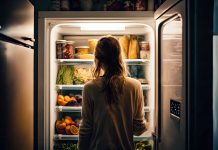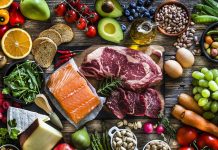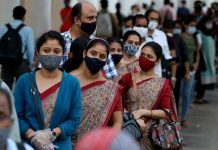Amid the first pandemic in more than a generation, the U.S. federal government is advising Americans to “stock up” and “hunker down.” But what do these mandates — issued to help prevent the spread of the novel coronavirus that causes COVID-19 — actually mean?
It depends on your situation.
Ultimately, your family size and whether you have children or older relatives living at home can affect your family’s nutritional needs and routines.
Social distancing or self-quarantining (if you’re recovering from COVID-19) will also play a role in your diet. You’ll likely find yourself preparing more meals for your family, eating solo, or carrying out or ordering in from local restaurants.
Regardless, your eating situation is likely to be different than it was in early 2020 — and your food choices have the potential to impact your body weight and health.
Some Notes on Stress, Loneliness, and Eating Habits
During this time of uncertainty, when many people’s routines have been shaken up, it’s normal to feel stressed. Some people may feel lonely, which has the potential to pose harms to your health.
The late John Cacioppo, PhD, and his colleagues at the University of Chicago extensively researched the health effects of loneliness. They found that loneliness, stress, and complex biological and physiological responses are connected. Furthermore, they found that long-term stress can result in an increased production of the stress hormone cortisol.
How can stress and loneliness affect your diet? Well, the cascade of these hormonal changes can signal the brain to eat more frequently, crave high-fat and sugary foods, increase appetite, and ultimately result in weight gain. Indeed, past research shows a clear link between stress and obesity.
Research in animals shows that social-isolation-induced obesity (SIO) is another potential concern. The allure of being home and eating entire boxes of cookies, pints of ice cream, and bags of potato chips is very real for individuals who already struggle with managing weight and aren’t accustomed to having less social interaction.
For many people, food acts as a friend — it is always there, can reduce loneliness, and is comforting during times of stress.
If you are feeling isolated, do your best to reach out to friends and family. The more you are able to communicate your emotions, the less lonely you may feel and the less likely you are to succumb to the effects of stress.
The Connection Between Good Sleep Habits and Diet
Additionally, social isolation is often intertwined with sleep disturbances, past research shows. Similar to the effects of loneliness, inadequate sleep may contribute to elevated cortisol levels, coupled with high ghrelin levels (a hormone that triggers hunger) and low levels of leptin (a hormone that leads to a feeling of fullness). Ultimately, these hormonal effects can lead to overeating. The Sleep Foundation recommends that most adults get seven to nine hours of sleep per night.






























